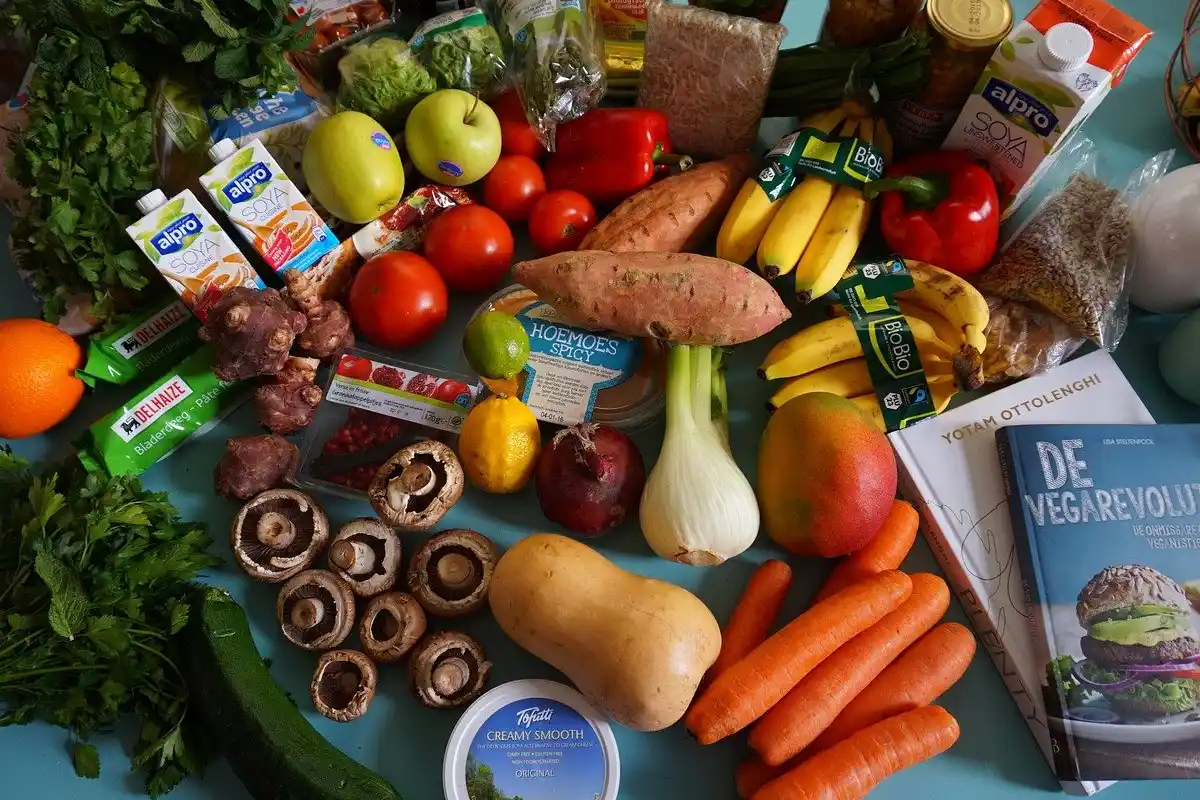Table of Contents
What Is A Balanced Diet?
A balanced diet provides the body with the nutrients it needs to function properly. The majority of your daily calories must come: to acquire the nourishment you require.
- Fresh fruit
- Fresh vegetables
- Whole grains
- Legumes
- Peanuts
- Lean proteins
Also Read: All About Snapple Peach Diet
Why A Balanced Diet Is Important
A balanced diet gives the body the nutrients it needs to function effectively. Without a balanced diet, your body is more prone to disease, infection, fatigue, and reduced performance.
Children who don’t consume enough wholesome meals may experience issues with growth and development, poor academic performance, and recurrent illnesses.
Additionally, they could start destructive dietary patterns that stick with them until adulthood.
Without exercise, individuals also risk developing type 2 diabetes, hypertension, obesity, and other conditions that make up the metabolic syndrome.
4 out of the top 10 reasons for mortality in the US are directly linked to diet, according to the Center for Science in the Public Interest.
- Heart disease
- Shrimp
- Type 2 diabetes and stroke
Foods To Include In A Balanced Diet
The following nutrients are often found in a diet that is healthy and balanced:
- Nutrients, vitamins, and antioxidants
- Containing starches and fiber, carbs
- Protein
Wholesome Fats
A varied selection of foods from the following food groups should be included in a balanced diet:
- Veggies
- Grain
- Dairy ingredients
Proteins In Food
Meat, eggs, seafood, beans, nuts, and legumes are a few examples of foods that are high in protein.
A vegan diet places a whole emphasis on plant-based meals. They won’t consume meat, fish, or dairy products, but they will consume other meals that are nutrient-dense.
Examples of plant-based sources of protein include tofu and beans. Additionally, some individuals sensitive to dairy can still create a healthy diet by selecting a range of nutrient-rich replacements.
Foods To Avoid
Foods to avoid or limit in a healthy diet include:
- Highly processed products
- Refined grain
- Added sugar and salt
- Red and processed meat
- Alcohol
Trans Fats
What is suitable for one person may not be good for another.
Wholemeal flour may be a healthy ingredient for many people, but it is not suitable for people with gluten intolerance.
Fruit
Fruits are nutritious, make a delicious snack or dessert, and can satisfy the sweet tooth.
Local seasonal fruits are fresher and contain more nutrients than imported ones.
Fruits are high in sugar, but this honey is natural. Unlike candy and many sugary sweets, fruit also contains fiber and other nutrients. This means they are less likely to cause a sugar spike and increase the body’s intake of essential vitamins, minerals, and antioxidants.
If you have diabetes, your doctor or nutritionist can advise you on which fruit to choose, how much to eat, and when.
Vegetables
Vegetables are a significant source of essential vitamins, minerals, and antioxidants. Eat various vegetables in different colors to get the full spectrum of nutrients.
Dark leafy vegetables are an excellent basis for many nutrients. These include:
- Spinach
- Cabbage
- Green bean
- Broccoli
- Cabbage
Chard
Local seasonal vegetables are often affordable and easy to prepare. Use them in the following ways:
- As a side dish
- Stir-fried with a drizzle of olive oil
- As a base for soups, stews, and first courses
- Like a salad
- In puree
- In juices and smoothies
Cereals
Refined white flour is used in many baked goods and baked goods, but its nutritional value is limited. This is because most beneficial properties are found in the grain’s husk, or outer shell, which manufacturers remove during processing.
Husks and entire grains are both considered to be whole grains. This is because they offer extra fiber, vitamins, and minerals. In addition, whole grains are frequently thought to enhance the flavor and texture of a meal.
Try substituting healthy grains for white pasta, rice, and bread.
Squirrels
Meat and legumes are significant protein sources, essential for wound healing, muscle maintenance, and development, among other functions.
Animal Proteins
Healthy animal products include:
red meats such as beef and lamb
poultry such as chicken and turkey
fish, including salmon, sardines, and other fatty fish
According to some studies and reliable sources, processed meats and red meats can increase cancer risk and other diseases.
Some processed meat products are also high in added preservatives and salt. Again, fresh raw meat is the best.
Vegetable Proteins
Protein, fiber, and other nutrients in nuts, beans, and soy products may be found in reasonable amounts.
Examples comprised:
- Lentils
- Beans
- Peas
- Almond
- Sunflower seeds
- Walnuts
Tofu, tempeh, and other soy-based foods are excellent protein sources and healthy meat alternatives.
Dairy Products
Dairy products contain essential nutrients, including:
- Protein
- Soccer
Vitamin D
They also contain fat. Low-fat options are best if you want to limit your fat intake. Your doctor can help you make a decision.
For those following a vegan diet, many lactose-free kinds of milk and other milk substitutes are now available, based on:
- Flax seed
- Almonds and cashews
- Soy
- Oats
- Coconut
They provide a fantastic substitute for cow’s milk since they are frequently fortified with calcium and other minerals. When choosing, carefully check the label because some have added sugar.
Bottom Line
Fresh, plant-based meals make up a large portion of a diverse and balanced diet, which also restricts the use of processed foods.
Make a selection with your doctor or dietitian if you have concerns about your nutrition, believe you need to lose weight or both.
They could recommend dietary adjustments to assist you in getting the nourishment you require and enhance your general health.
Also Read: Understanding Type 2 Diabetes

